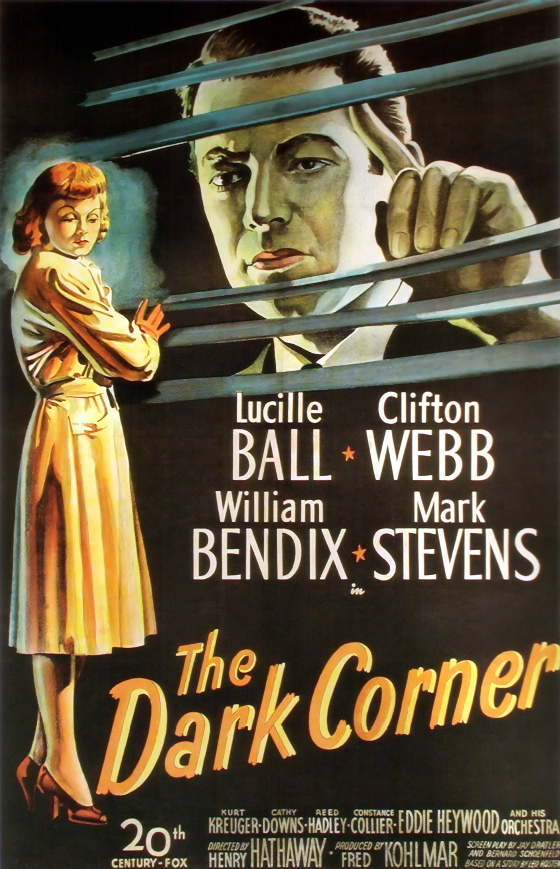
“I feel all dead inside. I'm backed up in a dark corner and I don't know who's hitting me.”
With this little speech, the hardboiled private-eye protagonist of Henry Hathaway's The Dark Corner, from 1946, leaves the world of 30s pulp fiction where he was born and enters the realm of the film noir.
He's lost the romantic nobility of the traditional private eye, summed
up by Raymond Chandler when describing his idea of the hero in a work
of detective fiction — “Down these mean streets a man must go who is not himself mean,
who is neither tarnished nor afraid.”
The hero of The Dark Corner, played by Mark Stevens, is
tarnished by a past frame-up for manslaughter, almost unhinged by the
memory of his impotence in the situation, his sense that it will follow
him forever and destroy him in the end. He's a tough guy, not
afraid of taking his licks but gripped by the dread of a consuming
darkness he doesn't understand and so can't control. The film
documents what is for him essentially an existential nervous breakdown.
His secretary, played by the still luscious, pre-ditzy Lucille Ball, mothers him,
bucks him up, challenges him to get his act together. She saves
him — but it's clear enough that she could shatter him, too. Her
strength is a gift which he can't match. She has, in other words,
all the power of a femme fatale — she simply chooses not to exercise it.
The male neurosis and confusion at the heart of the film constitute a
deconstruction of the traditional figure of the hardboiled private eye,
the wisecracking knight errant of Chandler's fiction. This
private eye is “wailing on the margin of nonentity”, in Blake's great
phrase, held back from the abyss only by Ball's unaccountable faith in
him. You just have to imagine her losing her patience to project
yourself into the darker universe of even bleaker noirs like Out Of the Past, where the fatal femmes rule.
